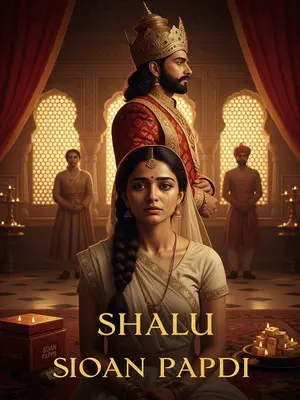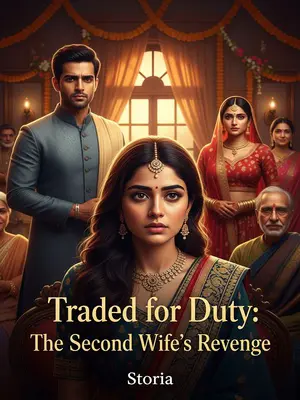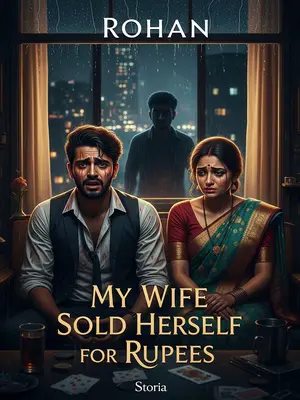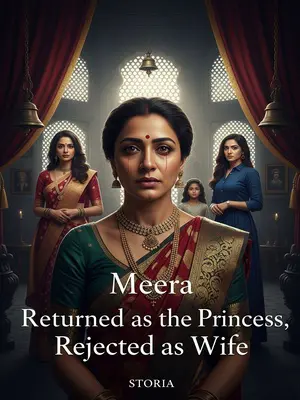Chapter 5: The Road to Freedom
It’s not uncommon in Lucknow to give away second wives—
especially among old families.
The neighbours would sigh and shrug—“Such is the way of our times, beta. Second wives come and go, like tenants in an old bungalow.” At weddings, aunties would gossip behind their dupattas about which woman had been ‘gifted’ to whom, their words sharp as chillies.
But giving away a second wife who has already had several children is rare.
This was not something spoken aloud, but everyone knew. The whispers turned sharper, laced with pity and contempt. My story became a cautionary tale for young girls—the fate that awaited those who strayed from the path.
Giving one to the chacha of a fiancée is even more unusual.
In the bazaars, the halwai and the barber would discuss my fate with the kind of relish reserved for the latest film gossip. “Can you imagine, to be married off to the fiancée’s uncle? Only in Lucknow!” The taste of imli lingered on my tongue as I passed the paan shop, the clatter of rickshaw wheels echoing down the kachcha road.
The eldest, being older and more sensible, clapped his hands when he saw I was leaving.
“Accha, finally! The bad woman is going, now we can have as much kalakand as we want!” His voice rang through the hall, and the servants snickered behind their hands.
"Great! The bad woman is finally leaving. From now on, I’ll have endless kalakand."
The sweet, usually reserved for special occasions, was now his promised reward for my absence. It stung to know that even my leaving brought them joy.
The second cheered: "I won’t have to practise tabla anymore!"
He threw his arms in the air, voice gleeful. The tabla, once a symbol of tradition and hope, had become a burden tied to my presence.
I was prone to pregnancy; by the second month, my belly would already be showing.
The ayahs would whisper, “Chandni didi is lucky—her body catches child so quickly.” But I knew the truth: luck had nothing to do with it. My body was a battleground, every pregnancy a war I barely survived.
But at that time, Arjun had no feelings for me and thought it was too soon. Fearing it would upset Meera if she heard, he forced me to take medicine to abort the child.
I remember the bitter taste of the herbs, the cramps that left me gasping for breath. The ayah stood by, expressionless, as I curled up on the cold floor, praying for the pain to end. No one mourned those lost lives—not even me, not then.
After that, there were several more I could not keep.
Each time, the rituals were the same—hushed voices, hidden medicines, hurried prayers. The doctors’ faces blurred together, their words a cruel refrain: “Better luck next time, beti.”
The fifth time, the old matriarch was determined. For the fifth child, she personally brought me over, dragging her sick body and enduring to care for me.
She arrived in a palanquin, her body frail but her spirit unbroken. She barked orders, dismissing the other servants, insisting on overseeing every detail herself. For the first time, I felt like someone cared whether I lived or died.
I brewed herbal kadha for her every day.
She would sip the hot, bitter concoction, her eyes softening as she watched me. Sometimes, she would pat my hand, murmuring old blessings under her breath. I began to hope, just a little.
She drove away the young zamindar whenever he came to visit.
Her voice was sharp as she scolded him. “You’ve done enough, Arjun. Let the girl rest. If you want an heir, you must first keep the mother alive.” Her words carried the weight of generations.
My child was born less than two months before she, too, passed away.
The day she died, the house fell silent. My grief was doubled—one for the woman who had tried to save me, another for the certainty that I was now truly alone.
The sixth child, the second son, was conceived during my confinement period.
The doctors warned me against another pregnancy so soon, but fate had other plans. My body, battered and weary, bore the brunt of everyone’s hopes.
By the time it was discovered, the pregnancy was already far along. If forced to take medicine, it could have killed both mother and child.
The family debated in hushed tones, weighing the risks and rewards. In the end, they decided to let me carry on, more for the sake of their legacy than my wellbeing.
I managed to give birth.
The pain was unimaginable, but I gritted my teeth and pushed through. When I finally held my son, I felt a surge of relief—one more chance to prove my worth.
But after two bouts of blood loss,
the children were born weak.
Their cries were thin, their bodies fragile. The doctors shook their heads, predicting short lives. I refused to believe them, willing my sons to survive against all odds.
When they were young, for their health, I strictly controlled their diet, begging the ayah to discipline them.
I measured every morsel, counting grains of rice, coaxing them to eat even when they resisted. The ayah grumbled, but I persisted, clinging to hope that vigilance would keep them safe.
Later, as they grew older, they learned of my identity and felt deeply ashamed.
I saw it in their eyes—the shame, the anger, the longing for a mother who would never come. They pulled away, seeking comfort elsewhere, leaving me to mourn the loss of what could have been.
My careful instructions became especially resented.
Every rule I set was met with rebellion, every gentle touch shrugged off. I became the villain in their stories, the obstacle to their happiness.
When they learned their real mother was coming into the household, the two little ones were overjoyed.
Their excitement was uncontainable. They followed Meera everywhere, eager to impress her, desperate for her approval. I watched from the shadows, invisible once more.
Now, they could not wait for me to leave at once.
Their impatience was palpable. Every day, they asked, “When will Chandni didi go?” I had become a ghost in my own home.
Seeing me seem upset,
Arjun said: "Enough, why argue with children."
He dismissed their cruelty with a wave of his hand, unwilling to acknowledge the pain they caused. His words, meant to placate, only deepened the chasm between us.
He glanced at me one last time: "Chandni, when you go there, you mustn’t be wilful anymore. Not every master is as easy to talk to as I am. Be obedient. When I have time, I’ll come visit you."
His tone was patronizing, as if I were a wayward servant. I looked away, unwilling to meet his gaze, my heart hardened by years of disappointment.
I ignored him, only kneeling on the ground, numbly picking up the ten pouches scattered across the floor one by one.
My fingers shook as I gathered them, cradling each pouch as if it were a living child. The room blurred, my vision clouded by tears I refused to let fall.
When I left, the servants were still whispering:
Their voices followed me down the corridor, a chorus of speculation and judgement. I kept my head high, refusing to let them see me break.
"Miss Chandni is deeply in love with the zamindar. Sigh, who knows how she’ll get through this in the future."
Their pity was a double-edged sword. Some whispered that I would pine for him forever, others that I would move on and forget. The truth was, I belonged to no one—not even myself.
"I heard it was Meera Sharma’s idea to send her to that widower in the Sharma family. Our future mistress is clever. Sending her to her own clan means that even if the zamindar misses her, he won’t dare act, and the Sharma family can keep her in check."
The politics of the household were as tangled as my memories. I realized I had been a pawn in a much larger game, my fate decided by those who saw only their own interests.
"I heard the Sharma family is rather ordinary, low in status, but there are many wives and maids at home. Sigh. She’s not young anymore, it won’t be easy."
Their words stung, but I refused to let them see my pain. I would find my own way, no matter how difficult.
"No wonder she wouldn’t let go of those pouches. It’s obvious she doesn’t want to leave."
They misunderstood, as always. The pouches were all I had left of my children—my only legacy, my only solace.
"Not wanting to leave is useless. She’s just a stand-in, only looks a bit like Meera Sharma. Now that the real one is back, what place is there for her?"
I had heard these words before, in different forms, from different mouths. They no longer hurt as much, but they still echoed in the emptiness inside me.
"Even though she’s marrying a second time, she hasn’t had children. Chandni has had so many; her body is already worn out. How can she compare to the real mistress?"
Their laughter was cruel, but I held my head high. I was more than the sum of my scars.
"Don’t say that. When I saw those ten children’s pouches just now, I nearly cried. Sigh, what a fate. If her luck were better, how could she have twelve and only two survive?"
Luck—always luck. As if everything could be explained by fate and fortune, never by cruelty or indifference.
I touched the pouches in my arms.
They were soft, their weight grounding me. I drew strength from them, from the love I had given and the grief I had endured.
They were full.
Good, they’re all here.
I counted them again, just to be sure. My heart eased, knowing I had not left anyone behind.
What I couldn’t bear to leave behind was never the zamindar, but these countless precious pearls and gold beads hidden in the ash.
My tears, my love, my pain—all of it was woven into those ashes. They were my only treasure, more valuable than any jewellery or silk.
I stepped out, carrying nothing but my children’s ashes and the weight of twelve years—finally free, or so I prayed.





